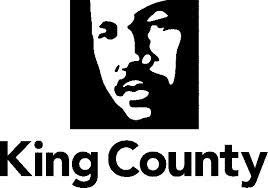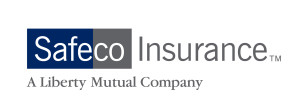Overview
ArtsFund’s 2014 Economic Impact Study compiles data from 313 non-profit cultural organizations in the Central Puget Sound region, in addition to over 3,500 patron surveys, to assess their impact on our region’s economy and identity. The study contains comprehensive information about how the region’s many arts, cultural, and scientific organizations fuel our economy and enrich our communities.
As the findings show, cultural organizations provide significant economic impact. They create jobs, generate tax revenue, and drive tourism, bringing “new money” into the region.
ArtsFund has produced four previous Economic Impact Studies (1992, 1997, 2003, and 2009). On the whole, cultural organizations show post-recession stability. Aggregate sales impacts and total jobs supported have increased modestly since ArtsFund’s 2009 study, as have audience levels and the number of productions and exhibits. The ripple effects of cultural organizations are felt across the region and the state. Continued investment in and promotion of our region’s cultural assets will ensure this impact will last for years to come.
ArtsFund’s 2014 Economic Impact Studies include both a Regional Report (inclusive of King, Kitsap, Pierce and Snohomish Counties) and a King County Report.
Read the full reports
Regional Report
Regional Executive Summary
King County Report
King County Executive Summary
2014 Impacts on Washington State Economy
The 2014 Economic Impact Study proved that cultural organizations are big business in our region. The activity of nonprofit cultural organizations and their patrons in King, Kitsap, Pierce and Snohomish Counties generated $2.4 billion in the Washington State economy and created 35,376 jobs, $996 million in labor income and $105 million in taxes.
In fiscal year 2014, the total income of nonprofit cultural organizations in the Central Puget Sound region was $512.9 million, most of which was spent in the local economy. Patrons spent $694 million on tickets, dining out, lodging, transportation, child care services, and other expenditures. The impacts of these expenditures ripple throughout the economy of the entire state.
With a night out on the town or outing to an exhibit, patrons support restaurants, retail stores and hotels, among hundreds of other businesses. The arts and cultural groups also keep our urban communities alive and welcoming on evenings and weekends.
Cultural Organizations Bring in New Money
Cultural organizations attract patrons both inside and outside their communities. Approximately 30% of sales impacts and 28% of labor income impacts came from funding sources and patrons outside the four-county area. These impacts are considered “new money”—funds that come here only due to the activities of local cultural institutions.
A Delicate Balance of Income and Expenses
With a total income of $512.9 million and total expenses of $496.4 million, operating margins are modest. Continuing support from all sectors of the community remains critical.
13.4 Million Visits in 2014
Annual admissions in 2014 totaled 13.4 million visits, nearly three and one half times the total population of the four counties. Of these annual admissions, 1.2 million were due to K-12 students experiencing cultural institutions using free or discounted tickets.
Providing And Creating Jobs
In addition to directly employing people, cultural organizations create a ripple of economic activity and additional jobs through their business activities and the expenditures of their patrons. In 2014, activities of Central Puget Sound cultural organizations and patrons supported a total of 35,376 direct and indirect jobs.
Key to Our Region’s Identity and Quality of Life
Over 90% of current patrons of cultural organizations identified cultural activity as highly important to the Central Puget Sound region’s identity. Whether cited as a reason to move here or as a reason to stay, cultural activity was identified as integral to the region’s livability and quality of life.
Sponsors
The 2014 study is authored by Professor William Beyers of the University of Washington with research collaboration with GMA Research. This study is made possible by generous financial support from the following partners:
Regional Report
Regional Executive Summary
King County Report
King County Executive Summary








![OAC_logo[black]](https://www.artsfund.org/wp-content/uploads/2015/02/OAC_logoblack.png)
